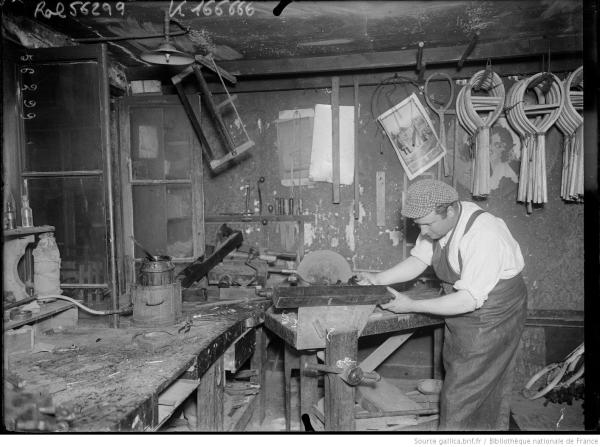
Whether it is that untidiness leads to ruin or that a manufacturer who is losing money has not the moral stamina to keep things in trim, thrifty shape is a hard matter to determine, but true it is that untidiness in the shop and office and ruin are such close friends that they are ordinarily seen together, and the sight of one suggests the other.
We have often seen men of rare industry, judged by their hustling manner, who would spend much time each day looking for tools they had forgotten where they left, stumbling over piles of stray castings left under the lathe or piled on or under the bench, or pawing those castings over for a piece somewhere in this pile or that, when it ought to be in a place by itself, going from tool to tool or bench to bench to find or borrow a drill or wrench or hammer or block, when there should be just one place to find the desired article.
And when the articles are found, he never thinks of returning them to their proper place. In fact, there will be no “proper place” for tools in such a shop, and the next man who wants them will go on the same hunting expedition about the shop. Such a shop will always have black and dirty walls and ceiling, with windows splattered with dirt and decorated with cobwebs, notwithstanding that the light is so bad that careful work is rendered impossible or tedious of accomplishment, when a few pence worth of lime and a brush would whiten the walls and ceiling, and greatly improve the light, and so expedite and improve the work.
Money and time are lost and ruin invited by a neglect of these things. But the greatest loss experienced by this deplorable and needless state of things is in the morale of the shop. Workmen compelled to work in a dingy, illkept, and ill-lighted shop will suffer loss of ingenuity, loss of ambition, loss of self-respect and respect for their employer and his interests. If they are forced to work at disadvantage the stimulus to activity and ingenuity suffers a gradual decay, and no one will pretend to deny that this decadence on the part of the workman is not a direct money loss to the proprietor.
Tidy workshops stimulate manliness and ingenuity on the part of workmen, and right here may be found the profit on the year’s business, or if neglected the year’s losses. There are plenty of establishments, east as well as west, which, by a careful attention to these matters—which they regard, in fact, as non-essential—could easily increase the efficiency of their workmen 10 per cent, and that per cent would determine the difference between a profit and a loss.
The Manufacturer’s Gazette – c.1890
—Jeff Burks